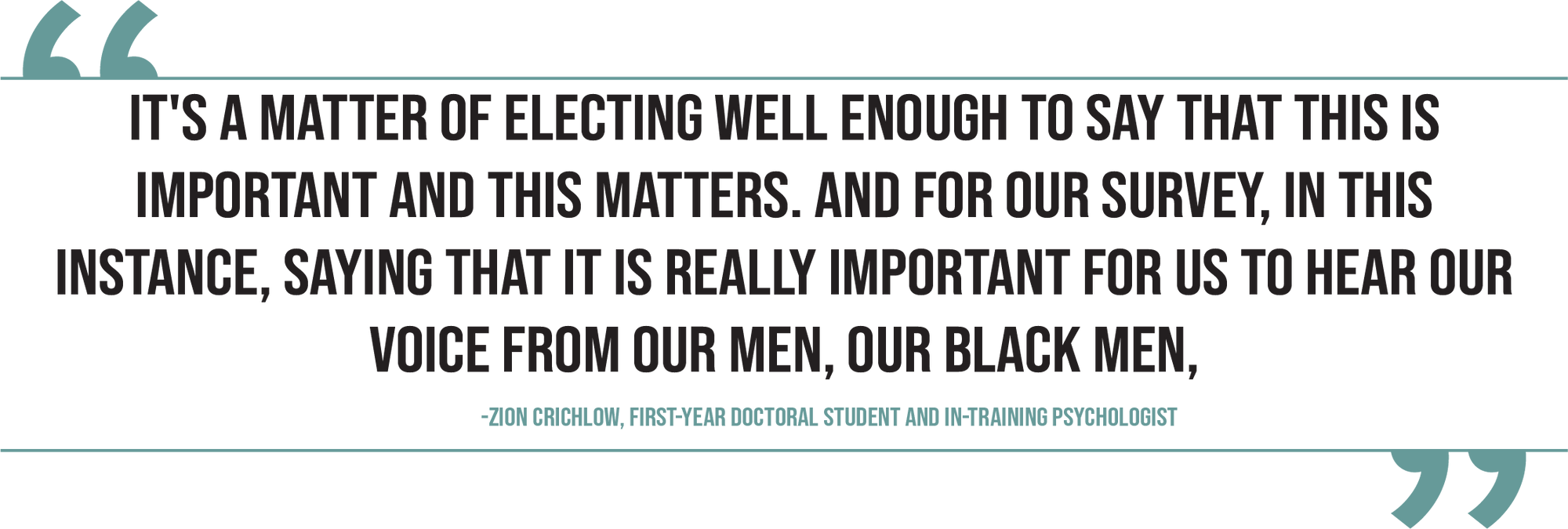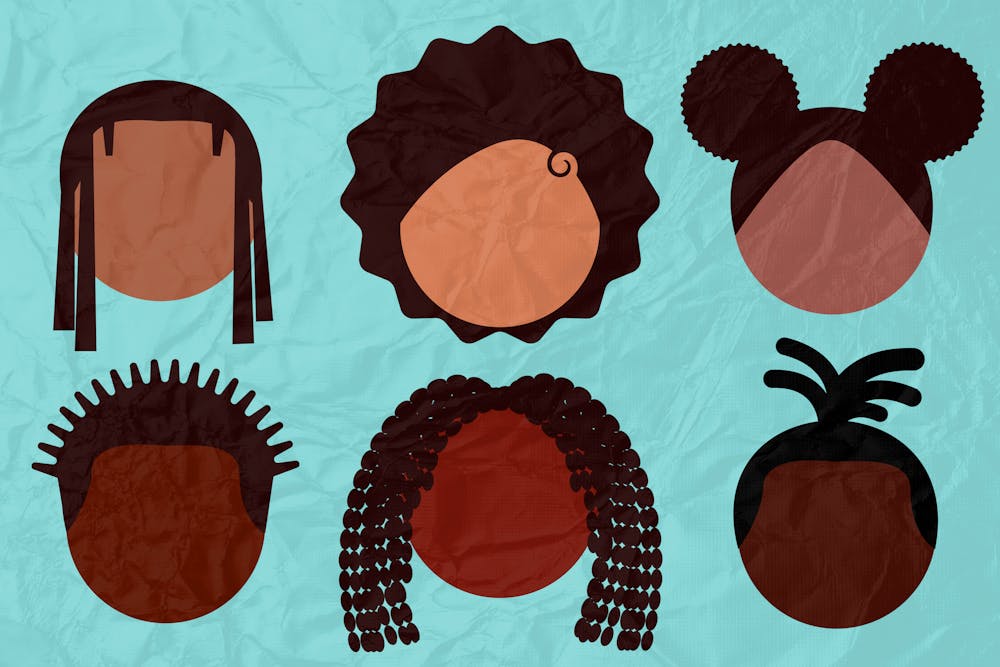Zion Crichlow, a first-year doctoral student and in-training student, has been training to become a licensed clinical community psychologist in his time at USC.
He focuses on ways to help minorities, such as Black men or members of the queer community. Now, Crichlow is helping to do just that through a project using on-campus data.
Through his research, Crichlow and a team composed of graduate students and professors are looking into the effects of hair discrimination on collegiate Black men and their mental health.
The hope is that the team's research will help get the Creating a Respectful and Open World for Natural Hair Act, known as the CROWN Act, passed.The law prohibits hair-based discrimination, which denies potential employment and education opportunities for Black Americans because of their hairstyles.
For Crichlow, a Black American, the research topic is one that carriers personal weight. His first experience with being discriminated for his hair was at 17.
"From 17 to 25 or 26, I can't tell you how many times I was told, 'You'll never be able to get a job. You have to cut your hair. You will never be able to have a career. No one is going to take you serious with dreads. That's not professional,'" Crichlow said. "I can't tell you how many times I was told so many negative messages just because of my hair."
Crichlow and the team have found that the modern workplace divides workers and sets unrealistic expectations for employees, specifically those with distinct hairstyles, forcing Black men to cut their hair to be able to work.
Among all racial groups, Black Americans face the most backlash about their hair, said Guillermo Wippold, a health promotion researcher and USC associate psychology professor. Distinct Black hairstyles such as locs, cornrows and braids are often seen as unprofessional and unable to be worn to work, he said.
"The actions of other people may not express discrimination against it," Wippold said. "They may worry and say, 'Is this person trustworthy?' or something like that."
Forms of hair discrimination have been gaining momentum for years, according to the Economic Policy Institute, but Wippold said that there is a way for discrimination to be prohibited through the CROWN Act.
The CROWN Act has been passed in many states such as Tennessee, Virginia and Texas, Wippold said.
Wippold and the team are conducting a survey to gain information about if hair discrimination leads to mental health effects. The survey is for people who identify as collegiate, Black American males across South Carolina Historically Black Colleges and Universities and USC.
Wippold decided to focus on Black men for the project due to there being a lack of research surrounding Black men specifically, he said.
The reason for the project is so that the voices of Black men are able to be heard, Crichlow said.
"And it's to really work on projects and research tailored to the experiences of Black men, being able to give them a voice, participate in research — also with researchers from here," Crichlow said.
Crichlow said that eventual progress comes with backlash, however. Crichlow said the Black American community needs to engage and participate all across the state, or else government agencies won't see the reason to engage with the issue.
"If people like you, people like me, if the Black male students don't engage, or respond or participate, then one of the outcomes could be, 'Well, if they don't even care, why should we?'" Crichlow said.
Kaylyn Garcia, a graduate research assistant and doctoral clinical psychology candidate, said that getting participation from the USC community is helping them to gather more numbers.
"We know what it takes to pass policy, and it takes numbers, unfortunately," Garcia said. "The more data that we can get to illustrate people's experiences and to help tell their story is helpful."
Garcia said she and the team are not only just settling at numbers, but are looking to appeal to the minds of the government officials by telling relatable stories and experiences. She and the team are looking to have group discussions where people can tell their own stories.
Crichlow said that electing strong political leaders who care for the Black community is also important. They are the ones who have the power to enact change, he said.
"It's a matter of electing well enough to say that this is important and this matters," Crichlow said. "And for our survey, in this instance, saying that it is really important for us to hear our voice from our men, our Black men."

Crichlow and the team are hoping to continue their effort around campus while spreading word of the CROWN Act.
"No matter what happens with the survey, with the CROWN Act itself, we're not going to stop," Crichlow said.
People who identify as collegiate, Black males that are interested in the project can fill out the survey here.

